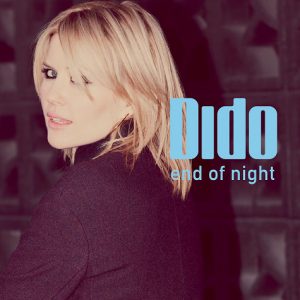When Dido first started talking about this album she said that it would have more of an electronic sound than her previous albums, but apparently she changed her mind when she was working on it. Or maybe the songs just naturally didn’t go in that direction. Because, honestly, I don’t feel like Girl Who Got Away is any more electronic than her previous three albums. In the case of some songs, it’s possibly even less electronic. That said, it’s easily superior to her last album, 2008’s under-whelming Safe Trip Home, which proved to be too safe and formulaic to capture anyone’s ear except for the die-hard Dido fans who think that she walks on water.
The album begins with the single “No Freedom,” which starts with Dido simply singing along to gently strummed acoustic guitar. A subtle electro beat kicks in at the chorus, but it does little to bring the formulaic tune to life. “No love without freedom, no freedom without love,” goes the overly simplistic chorus, which calls to mind Bob Marley’s “No Woman, No Cry.” It’s one of a few songs Dido wrote with Rick Nowels, who she co-produced the track with along with her brother Rollo Armstrong. The trio also collaborated on “Sitting On the Roof of the World,” which also begins with Dido accompanied by simple acoustic guitar. “I don’t want to be different, I just want to fit in,” Dido sings. Well, congratulations — songs like these should fit in quite nicely — in the background at boring dinner parties and on Muzak-infected elevators. Fortunately, the trio’s third collaboration is much livelier, starting off with an almost-danceable beat, the sort of beat we’ve been waiting for. Although not quite electro-pop, it’s energetic and vibrant and makes the song easy to like. “I’d rather die loving than lost in the feeling of letting go,” Dido sings during the chorus. It’s literally an upbeat song about dying.
The album’s strongest songs are those co-written and produced by Greg Kurstin, who recently helped transform Tegan & Sara into synth pop darlings. The best is arguably “End of Night,” which features a simple but throbbing, almost droning beat. “You were ugly when the beat kicked in and ugly when it left,” Dido sings during the bridge, delivering one of the album’s more interesting lyrics. The pair also wrote the gem “Happy New Year” along with Rollo. It begins with Dido singing over nearly muted bass and mild percussion and it never really takes off from there, but the melody and lyrics are memorable. “I’ll leave all those others celebrating all the things they have done,” she sings. It could pass for a suicide note. “Happy New Year, my darling, Happy New Year,” goes the sterile chorus, which Dido delivers in a deadpan, almost emotionless manner. Fortunately, the deluxe edition bonus track Dido did with Kurstin, “Let’s Runaway,” is almost as good as “End Of Night,” and it has the sort of uncomplicated but infectious beat that Kurstin is famous for. It also features some gorgeous synth and the biggest chorus on the album. “Let’s go away, then today won’t feel the same,” Dido sings with layers of background vocals behind her. So many of the songs on Girl Who Got Away would have been far better than they are if only they’d had backing vocals like this during their choruses.
Speaking of Faithless, the person Dido collaborated with most on the album is Rollo, her above-mentioned brother, who was also in the group. The title track, “Girl Who Got Away,” is one of several tracks they co-wrote and co-produced without any outside writers. It begins with flashy, though very low in the mix, synth and soothing bass guitar. “I want to make this day, the longest day,” she sings. “If only for today, I want to be, the girl who got away, the lover who really loved, the dancer to who danced to the last song.” About two thirds into the song, the synth gets louder and it’s joined by some rather jolting, intense beats along with soaring strings. I wouldn’t go so far as to call it epic, but it’s the closest anything on the album comes to being so elaborate.
Another Dido/Rollo standout is “Blackbird,” which features warm bass and intricate percussion. It starts off with what sounds like a backward vocal loop and continues to remain so intriguing throughout the rather adventurous track. “Why do I bring you love when all you give me back is pain?” Dido asks during the soaring chorus. “There’s a blackbird in my chest, all aflutter and all caged in,” she later sings. It’s one of the album’s highlights and you’re inclined to find yourself wishing more of the songs on the album were like it.
Ultimately, Girl Who Got Away is a sparse, lyrically-driven break up album that is likely to be enjoyed most during long, rainy, melancholic nights. That might sound lovely, but it’s also something of a tragedy, given that the album had the potential to be so much more. -Michael McCarthy


Leave a Reply